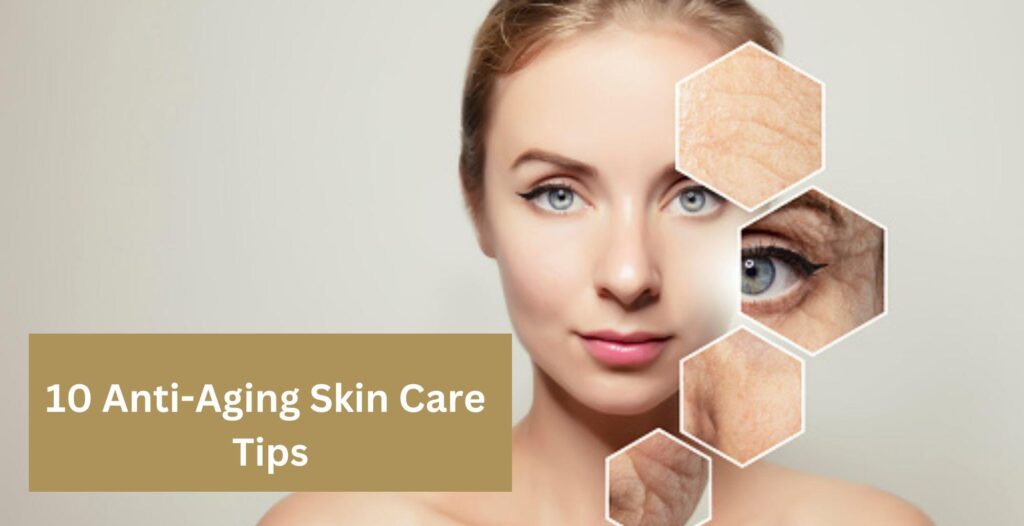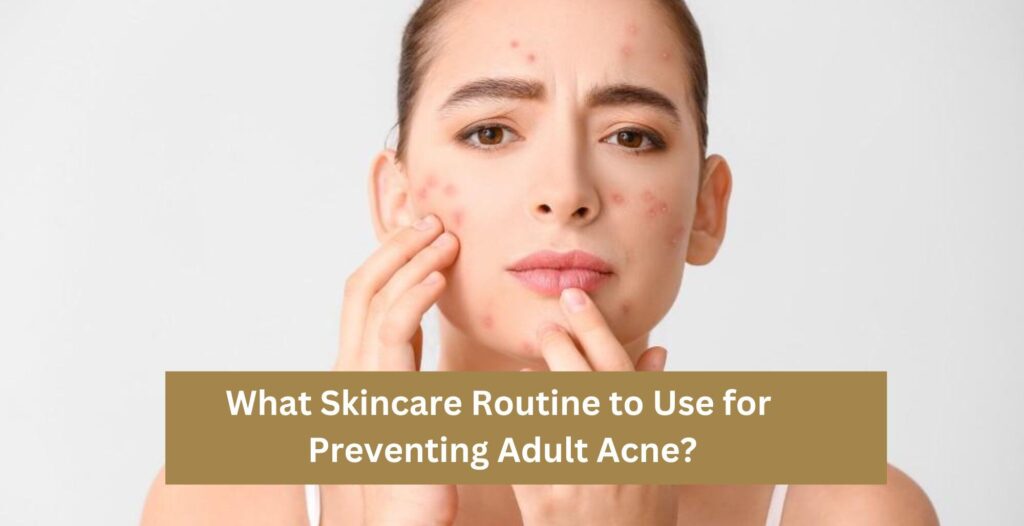People of all ages are susceptible to acne, a common skin issue that frequently causes aggravation and the need to look for practical treatments. Skin health can be greatly improved by knowing how to prevent and cure acne using particular skincare regimens and products.
Table of Contents:
What Causes Acne? – You need to know!
- Clogged Hair Follicles: Sebum and dead skin cells block hair follicles, which is how acne starts. Bacteria can grow in this environment because of the obstruction.
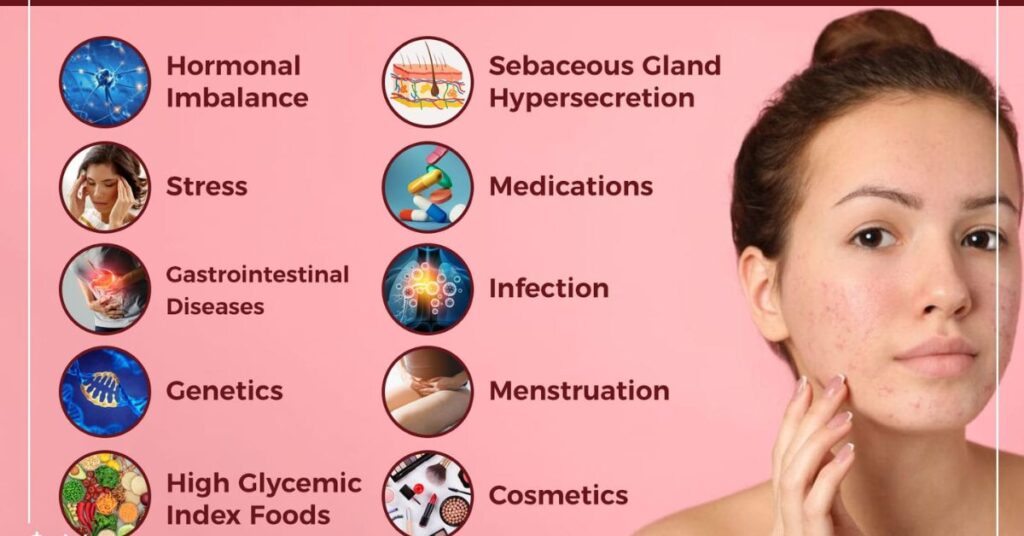
- Hormonal Fluctuations: The development of acne is significantly influenced by hormones. Sebum production can be increased by changes that occur throughout puberty, menstrual cycles, pregnancy, and times of severe stress. Higher oil production is caused by androgens, including testosterone, and can clog pores.
- Overproduction of Sebum: Sebum is an oily material secreted by sebaceous glands to moisturize the skin. Excess production combines with dead skin cells to block hair follicles and cause acne.
- Bacterial Growth: Propionibacterium acnes (P. acnes) and other bacteria are naturally present in the skin. These bacteria can grow quickly in clogged hair follicles, causing inflammation and acne.
- Diet: Some foods might cause acne, or aggravate it. Dairy products and foods with a high glycaemic index, such as sugary snacks and refined carbohydrates, might affect hormone levels and cause an increase in sebum production.
- Stress: Stress raises the body’s cortisol levels, which can worsen acne. This hormone increases the production of oil, which may lead to breakouts occurring more frequently.
- Genetics: The composition of your DNA can influence your susceptibility to acne. You may be more susceptible to acne if your parents had it since hereditary factors affect sebum production and skin responsiveness.
Best Skincare Routine to Prevent and Treat Acne – Clear Skin Awaits!
1. Cleansing:
Keeping your face clear and acne-free requires regular cleaning. Eliminating excess oil, debris, and other pollutants that might clog your pores and result in breakouts is the primary goal of cleansing.
Make sure you pick a gentle cleanser that won’t clog your pores for optimal skin cleansing. Seek for one that has benzoyl peroxide or salicylic acid in it. Benzoyl peroxide combats acne-causing germs, while salicylic acid helps unclog pores and avoid blackheads.
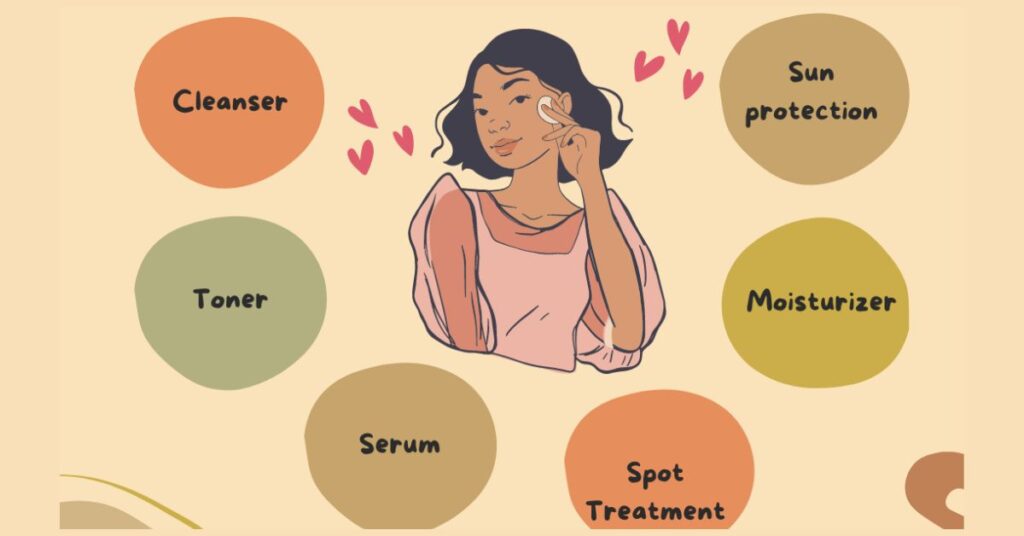
2. Exfoliation:
By eliminating dead skin cells that can clog pores and result in acne, exfoliation keeps your skin clear.
Use products containing beta hydroxy acids (BHAs) or alpha hydroxy acids (AHAs) to exfoliate. BHAs delve deeper to clear clogged pores, while AHAs act on the skin’s surface to smooth it.
Twice a week, exfoliate your skin. To get the greatest results, follow this routine as it can irritate your face and exacerbate acne.
3. Toning:
Toning tightens pores, minimizes oil production, and restores skin balance. Using a toner suitable for skin prone to acne should follow cleansing your face.
Pick a toner that has chemicals like niacinamide, which regulates oil and helps to reduce irritation, or witch hazel, which calms the skin and reduces oil. For balanced, healthy skin, use toner twice a day, in the morning and right before bed.
4. Treatment Products:
Treatment items assist in addressing particular issues with acne, including irritation and outbreaks. Use these items to take care of your skin’s needs after using toner.
Benzoyl peroxide, for instance, lessens redness and destroys the bacteria that cause acne. Salicylic acid aids in maintaining clear pores. Retinoids aid in cell turnover and blockage prevention for your skin. An all-natural solution that reduces inflammation and battles bacteria is tea tree oil.
Additional Tips to Prevent and Treat Acne
- Refrain from Over-Washing: Frequent face washing might strip your skin of its natural oils, which could lead to increased oil production and breakouts.
- Avoid Touching Your Face: To avoid causing bacteria and oil from your hands to land on your skin, try not to touch your face too much.
- Remain Consistent: To observe appreciable changes, stick to your skincare regimen for at least 4-6 weeks.
- Healthy Lifestyle: To promote general skin health, maintain a balanced diet, drink lots of water, and learn to manage stress.
When to Consider Prescription Treatments
Consider prescription treatments if over-the-counter medicines aren’t working to control your acne. For more severe cases of acne that don’t go better with regular products, they are usually advised.
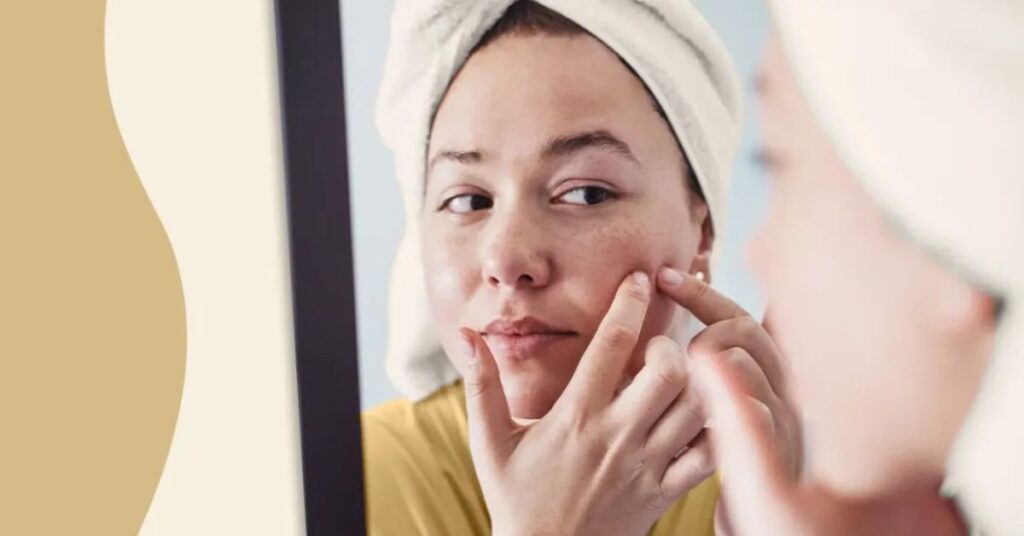
When it comes to retinoids, prescription options are more beneficial than over-the-counter ones. They function by lessening inflammation and assisting in the healing of severe acne. These drugs are frequently recommended when acne is extremely severe or persistent.
Severe acne may sometimes require oral drugs, such as hormonal therapies or antibiotics. While hormonal treatments can balance the hormones that contribute to acne, antibiotics help to lessen the germs that cause the condition.
Speaking with a dermatologist is a smart move if your acne is severe or persistent. After evaluating your situation, they can suggest the prescription medications that will work best for you.
FAQS:
1. When should I consider prescription treatments?
See a dermatologist if over-the-counter acne treatments don’t work for you or if your acne is severe or persistent. It may be required to use prescription therapies such as retinoids or oral medicines.
2. Can stress impact acne?
Indeed, stress can make acne worse by causing outbreaks and raising oil production. Your skin can become better by managing stress with good habits like exercise, relaxing, and getting enough sleep.
3. How can I prevent acne scars?
Avoid popping or squeezing pimples, wear sunscreen to shield your skin from UV rays, and think about topical retinoids or exfoliating to enhance the texture of your skin to prevent acne scars.
Conclusion:
A regular, comprehensive skincare regimen is essential to controlling and preventing acne. To address certain issues, start with fundamental procedures like washing, exfoliating, toning, and moisturizing. Then, add speciality treatments.
Read Also:

